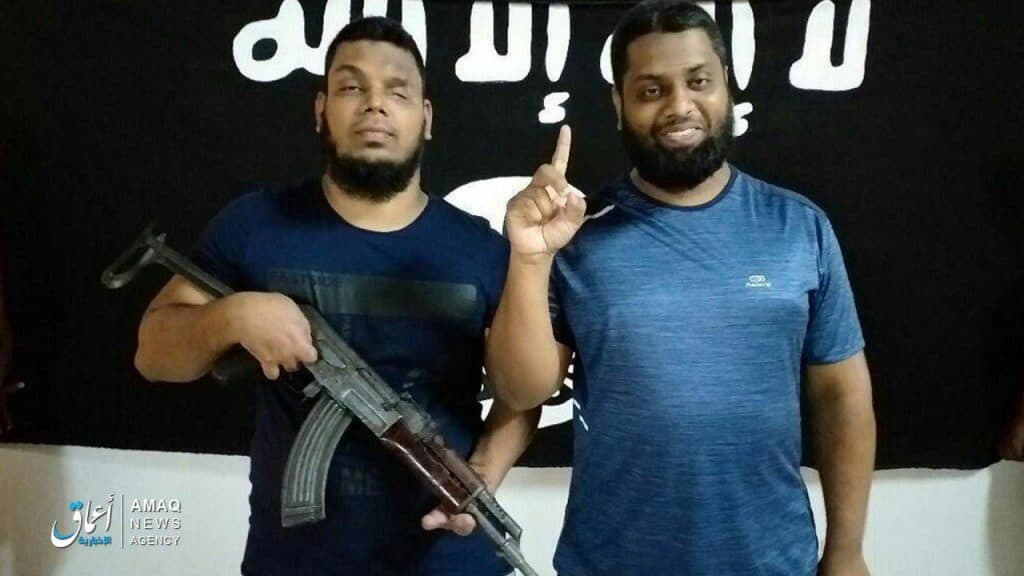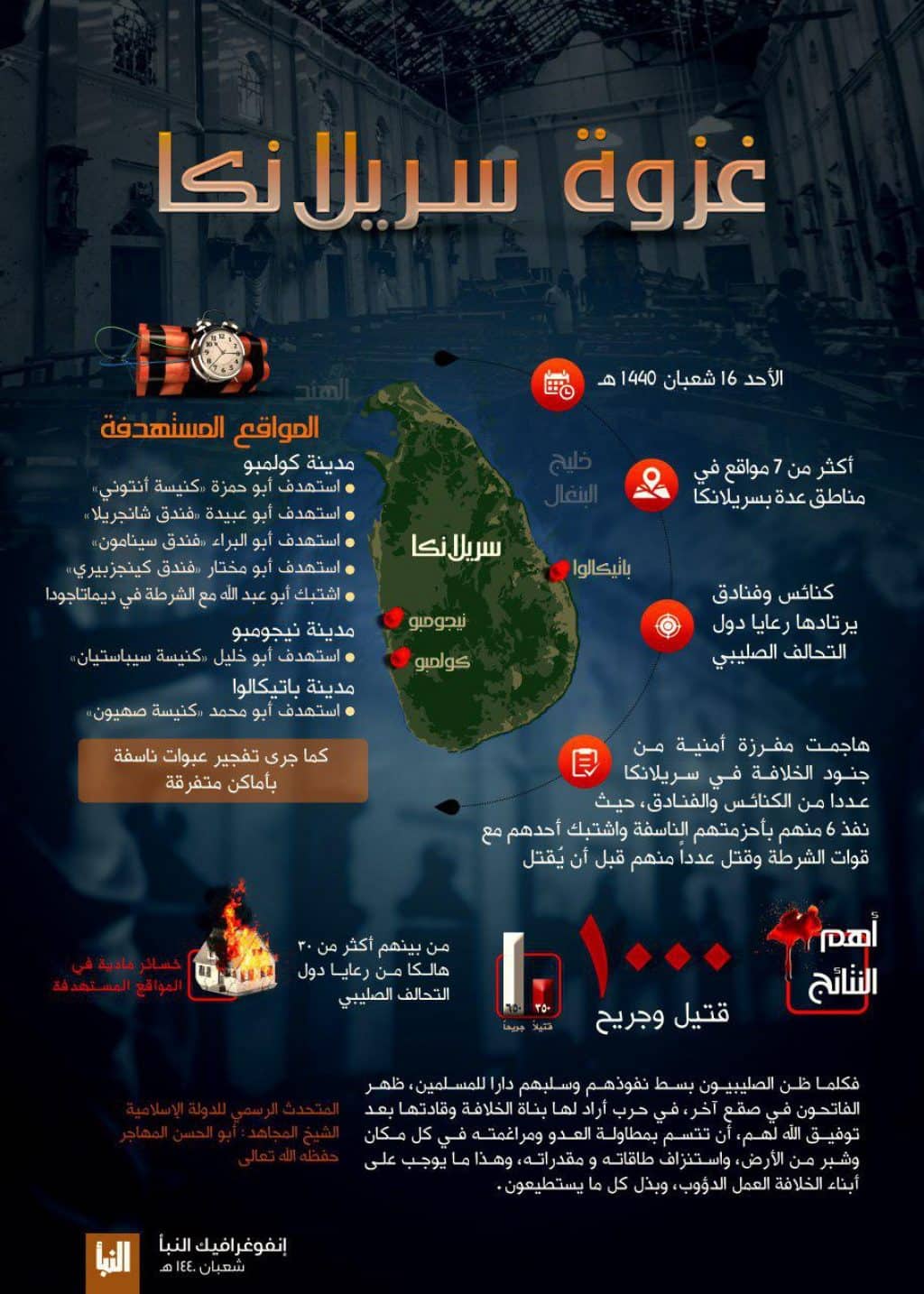
Sri Lankan authorities raided a suspected terrorist hideout late yesterday, leading to a bloody clash that lasted a few hours. The raid was part of a security sweep intended to roll up members of the network responsible for the Easter Sunday bombings in and around the capital of Colombo. Those attacks, perpetrated by multiple suicide bombers, killed more than 200 people and wounded many more.
The raid occurred in the eastern city of Kalmunai. The Islamic State has released its own version of events.
The so-called caliphate’s Amaq News Agency produced a single-page statement, which is accompanied by a picture of two jihadists standing in front of the Islamic State’s flag. Amaq claims that “17 members of the Sri Lankan police were killed and wounded in an ambush prepared by Islamic state fighters in” Kalmunai.
Citing a “security source,” Amaq says that Abu Bakr al-Baghdadi’s loyalists lured Sri Lankan authorities to a house in Kalmunai, where they were encircled, leading to a firefight.
However, Amaq’s version of events is not corroborated by independent reporting.
According to the official website of the Sunday Times in Sri Lanka, authorities did not suffer any casualties in Kalmunai. Instead, several terrorists were killed, along with women and children who were apparently in the jihadists’ home. That account is similar to one provided by Firstpost, which reported that 16 people died. The dead included two terrorists who perished during a shootout, and four other jihadists who died in a suicide explosion. The remaining nine to ten causalities were women and children, according to Firstpost.
There is ambiguity in the casualty reporting and many details remain to be confirmed. FDD’s Long War Journal will update this account if appropriate.

Within hours of the incident, Telegram channels associated with the Islamic State and its supporters disseminated an unofficial video of the jihadists in Kalmunai. A screen shot from the grainy footage can be seen above.
The main speaker in the video appears to be one of the two men pictured in Amaq’s statement. It seems he was blind, or had impaired vision, in at least one of his eyes — his left. Others speak in the video, and a baby can be heard crying in the background.
Two days after the bombings in Sri Lanka, Amaq released a video of the eight suicide bombers, including their leader Zahran Hashim, swearing allegiance to Abu Bakr al-Baghdadi. That footage, as well as the unofficial video released from inside Sri Lanka earlier today, shows that the terrorists have digital ties, at a minimum, to other Islamic State actors. Authorities are currently investigating the extent of the connections between the Sri Lankan attackers and the Islamic State.
The Islamic State has heavily promoted the Easter bombings in Sri Lanka, highlighting the fact that Christians and “Crusaders,” including multiple foreigners from Western countries, were targeted. The cover story of the 179th edition of the Islamic State’s Al Naba newsletter praised the bombings. Al Naba’s editors also produced an infographic promoting the large-scale terrorist assault. The infographic was translated into multiple languages. The Arabic version can be seen below.
Sri Lankan authorities have claimed that the bombings were retaliation for the Mar. 15 terrorist attack by a white supremacist in New Zealand. But the Islamic State’s media team has not portrayed it as such in Al Naba or in any other statements.
Instead, Abu Bakr al-Baghdadi’s men say they don’t need an excuse to kill Christians, because the “polytheists” are a legitimate target regardless.
The 179th edition of Al Naba included this infographic celebrating the Easter bombings in Sri Lanka:








